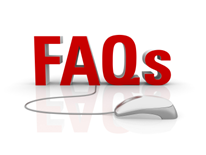
Q: What is a solicitation?
- A: When a government entity wants to purchase goods or services, it must issue a solicitation, which includes multiple pieces of documentation that clearly states the requirements for businesses to submit a competitive response.
Q: What is an Invitation for Bid (IFB)?
- A: The solicitation method is used for competitive sealed bidding for the purchase of equipment, materials, goods, and construction.
Q: What is a Request for Proposal (RFP)?
- A: The solicitation method used in the competitive sealed proposal process which includes the submission of written technical and price proposals from one or more offerors and a written evaluation of each proposal in accordance with evaluation criteria which consider price, quality of the items, performance, and other relevant factors. The RFP process permits negotiations with offerors.
Q: What is a Request for Quote (RFQ)?
- A: The solicitation method used for simplified contracting procedures where the estimated value is less than $100,000. The basis for an award may be price or cost alone or price and cost combined with other factors.
Q: What is the required documentation to do business with DGS?
- A: several documents are required, including an Active Business License, Bidder/Offeror Certification, DOES 1St Source Agreement, and a Certificate of District City-wide Clean Hands
- Bidder/Offeror Certification
- DOES 1St Source Agreement
- DOES 1St Source Employment Plan
- DSLBD Sub-Contracting Plan Form
- DOES EEO Policy and Report
- Certificate of District City-wide Clean Hands
- Active Business License
- Offerors’ Past Performance Evaluation Form(s) (RFP Only)
- Response to Special Standards of Responsibility (IFB Only)
Q. Is there a Vendor/Bidder list for DGS?
- A: DGS utilizes the database maintained by the Department of Small and Local Business Development (DSLBD). The DSLBD database, accessible at https://dslbd.dc.gov/service/find-certified-companies , provides a number of ways to search the database including primary business service, NIGP codes, and location, among others.
Q. Where does DC DGS publish current solicitations for goods, services, and construction?
- A: DGS Solicitations with an estimated value in excess of $100,000 may be viewed on the DGS website. See the listings under Active DGS Solicitations.
Q: Where do I find information on the new First Source law, and how do I get the new agreement?
- A: DGS Contract Specialists include copies of the applicable First Source Agreements & Employment Plans in all solicitations. Information on the DC First Source Act can be found in the D.C. Code §§ 2-219.01 – 2.219.05.
Q: What if a vendor has a question while filling out a request for a quote, bid, or proposal document?
- A: Please phone or email the point of contact identified in the solicitation.
Q: How do I obtain Bid results?
- A: After the final award, telephone or email the point of contact identified in the solicitation. If you have bid on a solicitation, you will be notified via mail of the results. You can review Contract Awards & Small Purchases on the DGS website.
Q: How do I obtain copies of DGS solicitations?
- A: Vendors interested in solicitations may download solicitation announcements from the DGS web site, Active (Existing) Solicitations webpage.
Q: How do I obtain information on DC's Certified Business Enterprise (CBE) certification program?
- A: Information may be obtained by calling the District of Columbia's Department of Small and Local Business Development (DSLBD) at (202) 727-3900 or visiting the DSLBD website at dslbd.dc.gov
Q: What is the difference between an Open Market and a Sheltered Market procurement?
- A: An open market solicitation is a procurement that is open to all vendors. A sheltered market solicitation is a set-aside procurement open to the CBE community.
Q: What are CBE preference points?
- A: Preference points are either points awarded (Request for Proposal) or percentage reduction in price (Invitation for Bids) granted to local, small, disadvantaged businesses based on the certification of the vendor as provided by the Department of Small Local Business Development.
Q: What is a Delegation of Authority?
- A: A Memo to vendors/DGS contractors about goods & services provided without a written contract, also known as the ratification process. The Chief Contracting Officer (CCO) may delegate his or her contracting authority to employees of the Department, or employees of the District of Columbia government acting on behalf of the Department, who shall be designated as “Contracting Officers.” Any such delegation shall be in writing and shall specify any limits on a Contracting Officer’s delegated authority (for example, limits on the dollar value of contracts the individual is authorized to award). In no case shall a Contracting Officer’s authority exceed the CCO’s authority. All such delegations shall be made publicly available on the Department’s website. Delegation of Authority
Q. What are the procedures for changing a contractor's name?
- A: The contractor must submit a written request to [email protected] and include the pertinent documents relating to the request for a name change. The relevant documents are an updated W9 & Master Supplier Form.
Q: How do I find out more information on upcoming business opportunities?
- A: Solicitations are published on the DGS website at DGS Solicitations. Forecasts on the DGS Website can be viewed on the Procurement Planning and Forecasting Page.
Q: How do I get general assistance on the procurement process or discuss how to do business with DGS?
- A: You may contact procurement staff for specific questions by email at [email protected]
Q: What is the DGS Certified Business Enterprise (CBE) Ombudsman?
- A: The DGS Certified Business Enterprise (CBE) Ombudsman serves as a vehicle for contractors and subcontractors performing work or providing services under a District contract to communicate their complaints and concerns regarding contracting, procurement, or a specific contract, through a single entity; (D.C. Code § 2–352.07)
Related Information:


